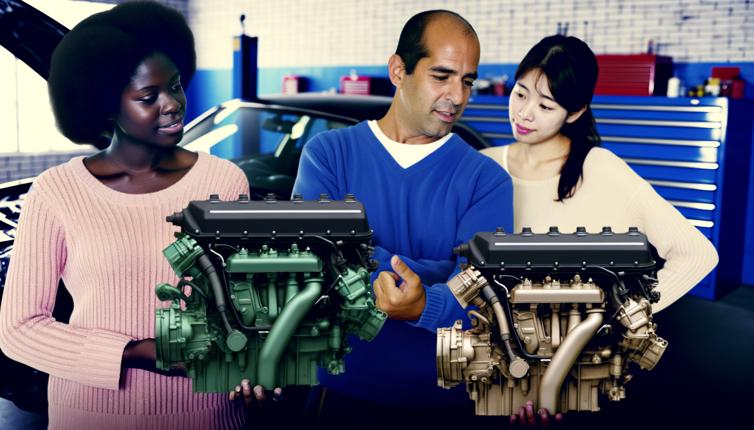Understanding Your Vehicle's Requirements
The first step in choosing the right engine for your vehicle is to understand its requirements. Different vehicles have different needs when it comes to power, efficiency, and performance. You need to consider factors such as the vehicle's weight, intended use, and desired performance level.,For example, if you have a small car that is primarily used for commuting, you may prioritize fuel efficiency over raw power. On the other hand, if you have a larger vehicle or plan to do a lot of towing, you may need a more powerful engine.,It's also important to consider any specific requirements or restrictions that may apply in your area. Some regions have emissions regulations that dictate the type of engine you can install in your vehicle. Make sure to check these regulations before making a decision.
Types of Engines
Once you understand your vehicle's requirements, it's time to explore the different types of engines available. Here are the main types of engines you're likely to encounter:,- Gasoline Engines: Gasoline engines are the most common type of engine found in vehicles. They are known for their power and responsiveness, and they come in various sizes and configurations.,- Diesel Engines: Diesel engines are known for their torque and fuel efficiency. They are a good choice for towing and long-distance driving.,- Electric Motors: Electric motors are becoming increasingly popular for their efficiency and environmental friendliness. They are a great choice for city driving and short commutes.,- Hybrid Engines: Hybrid engines combine gasoline or diesel engines with electric motors. They offer the best of both worlds, providing power and efficiency.,Each type of engine has its pros and cons, so it's important to consider your specific needs and priorities when making a decision.
Consulting with Experts
Choosing the right engine for your vehicle can be a complex task, especially if you're not familiar with the technical details. That's why it's a good idea to consult with experts in the field.,Mechanics, automotive engineers, and knowledgeable enthusiasts can provide valuable insights and recommendations based on their experience. They can help you understand the technical specifications, performance characteristics, and potential drawbacks of different engines.,Don't be afraid to reach out to professionals or join online communities dedicated to automotive discussions. The more information you gather, the better equipped you'll be to make an informed decision.
Conclusion
Choosing the right engine for your vehicle is a decision that shouldn't be taken lightly. It requires careful consideration of your vehicle's requirements, the different types of engines available, and consulting with experts in the field. By following these steps, you can ensure that you make the right choice and enjoy optimal performance and longevity from your vehicle.








